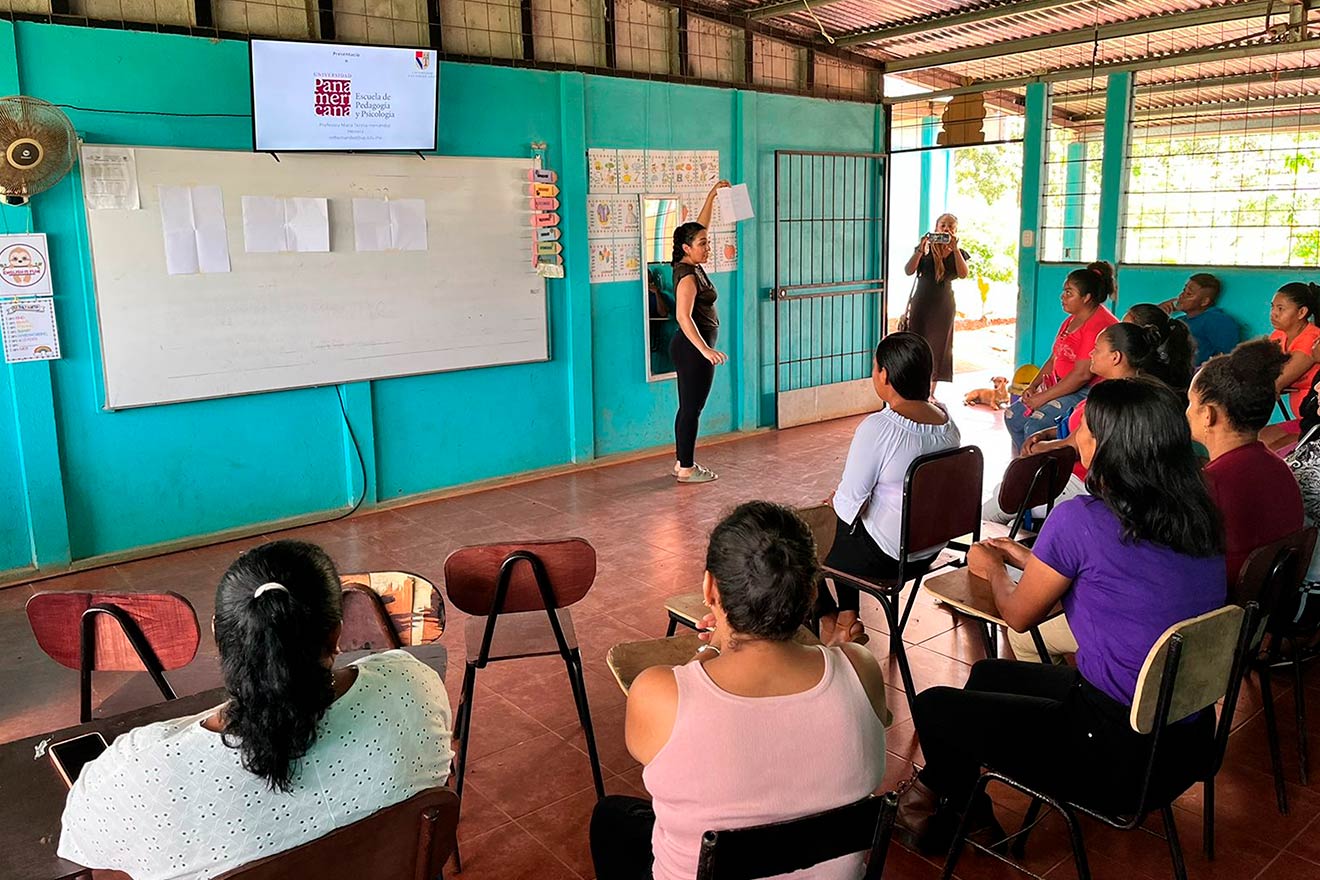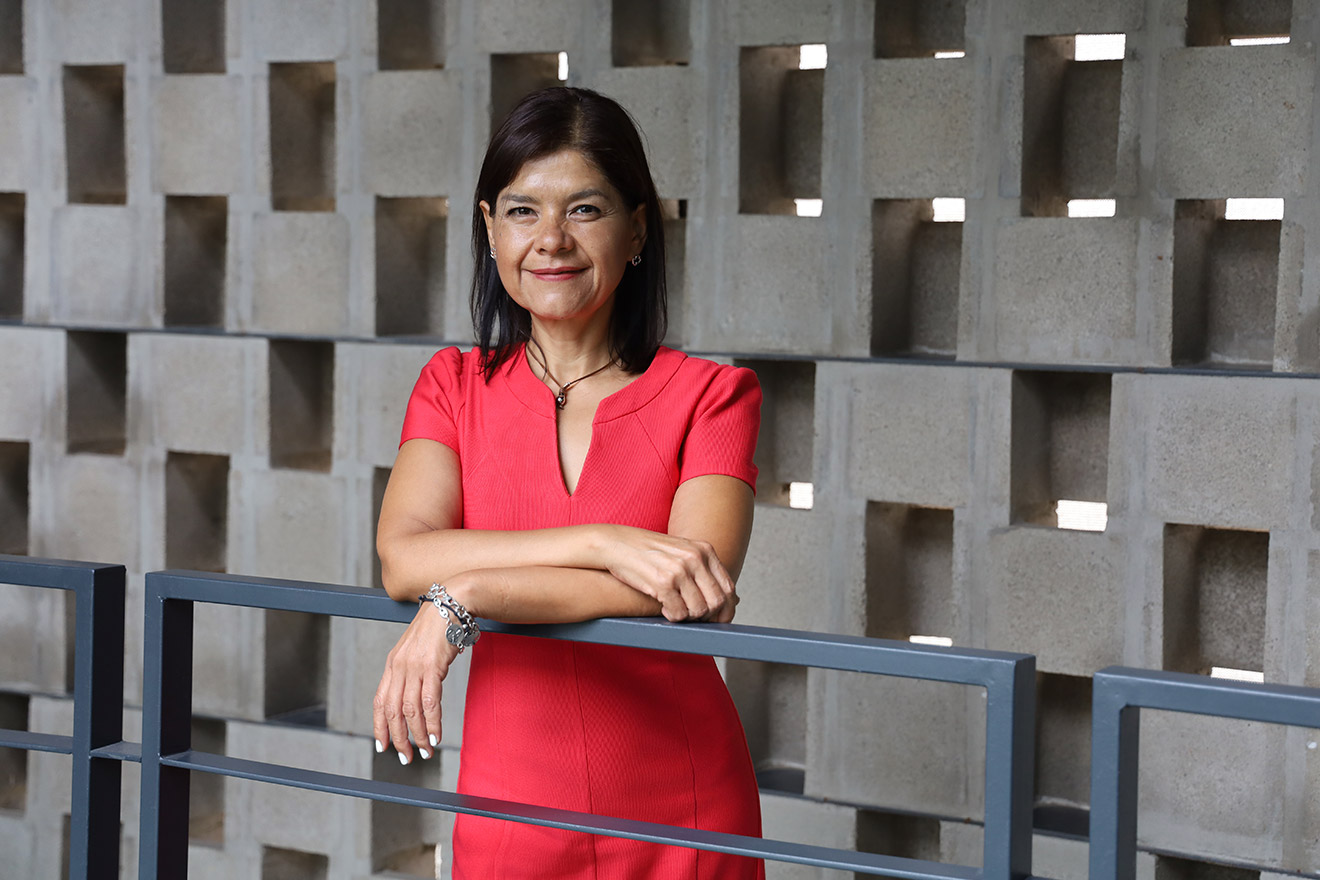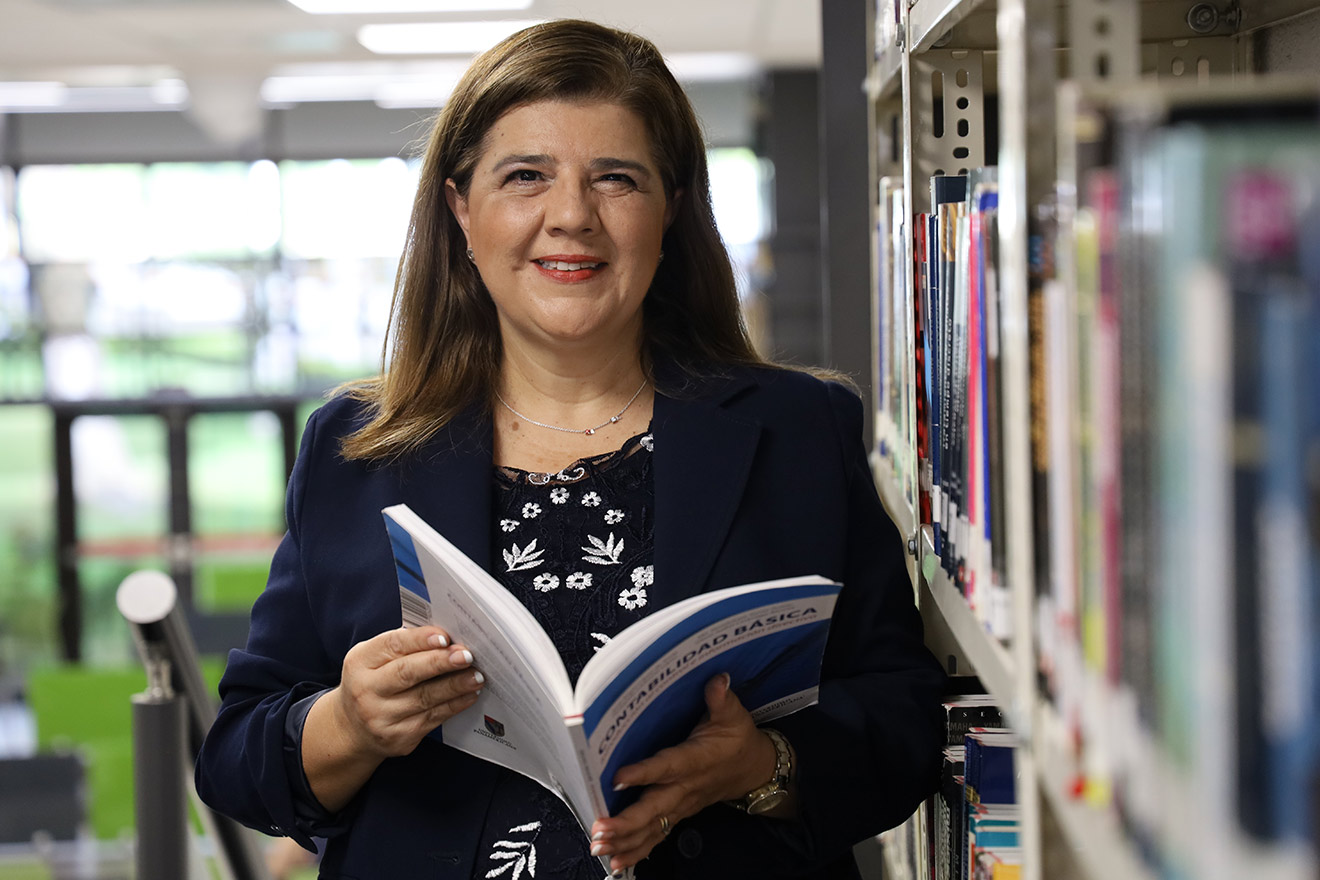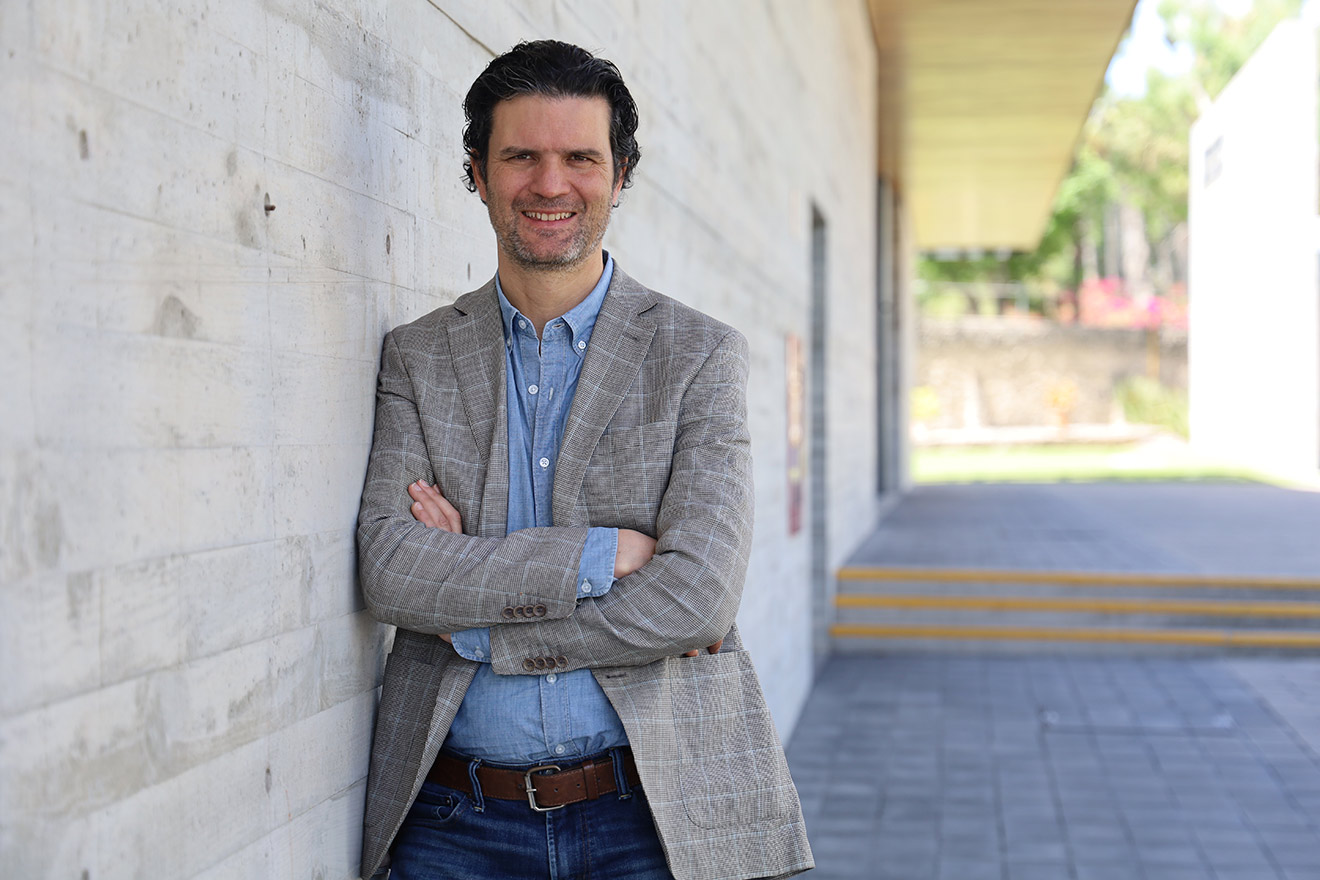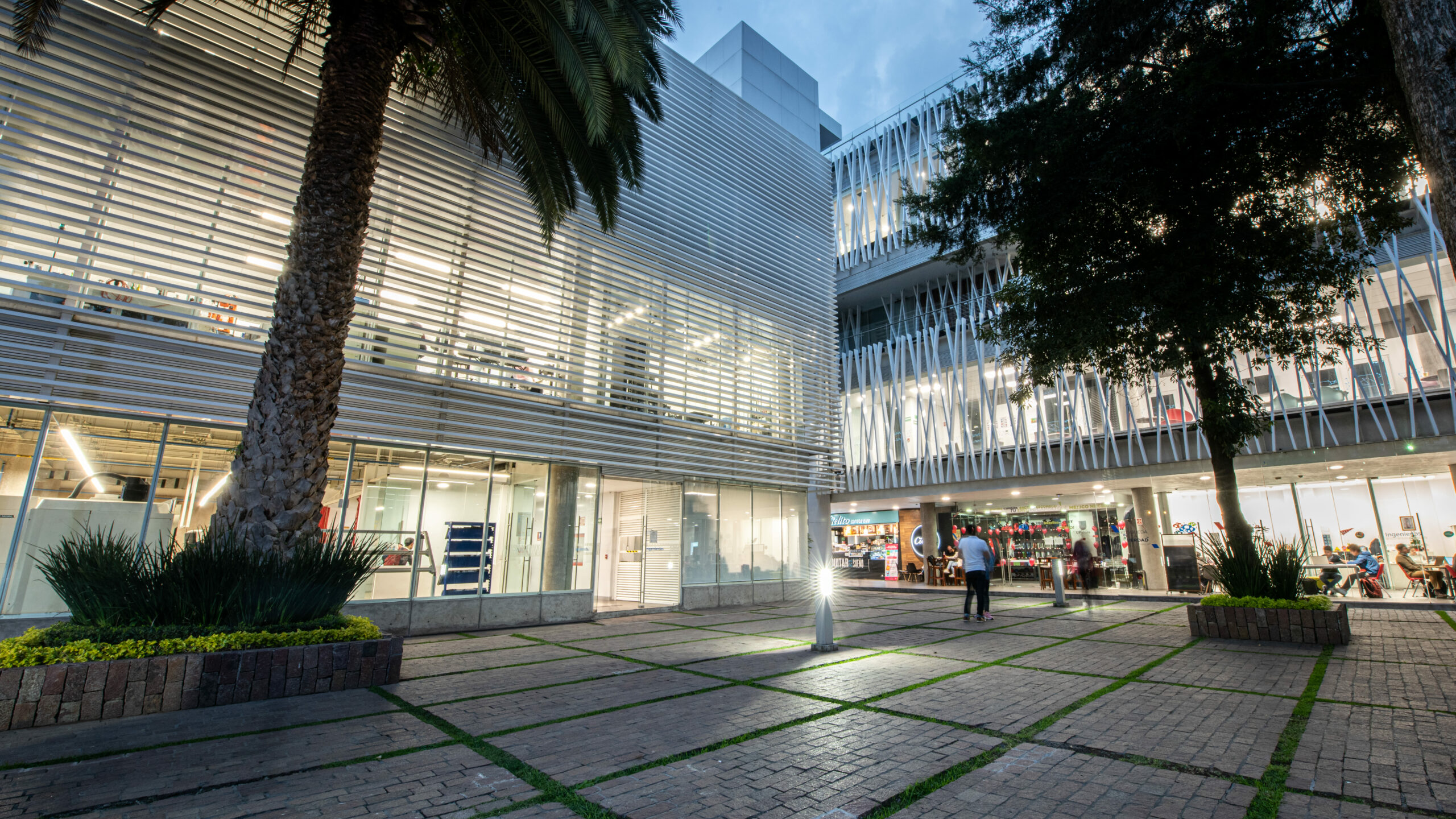As part of the research projects in which Professor María Teresa Hernández Herrera, professor of the School of Pedagogy and Psychology of the Panamericana campus Aguascalientes and as part of the Thematic Research Network of Rural Education, she has recently participated with a workshop for mothers and fathers in the community of La Trocha within the Canton Los Chiles in Costa Rica.
Professor Teresa Hernández
The Thematic Research Network on Rural Education is in charge of organizing seminars that bring together different researchers interested in rural education from different fields, from those dedicated to school didactics, especially multigrade in rural classrooms in different Ibero-American countries, and who approach the topic from a didactic perspective, as well as the topic of rural education from an educational policy perspective and even with an approach on educational inequality, such is the case of Teresa Hernández.
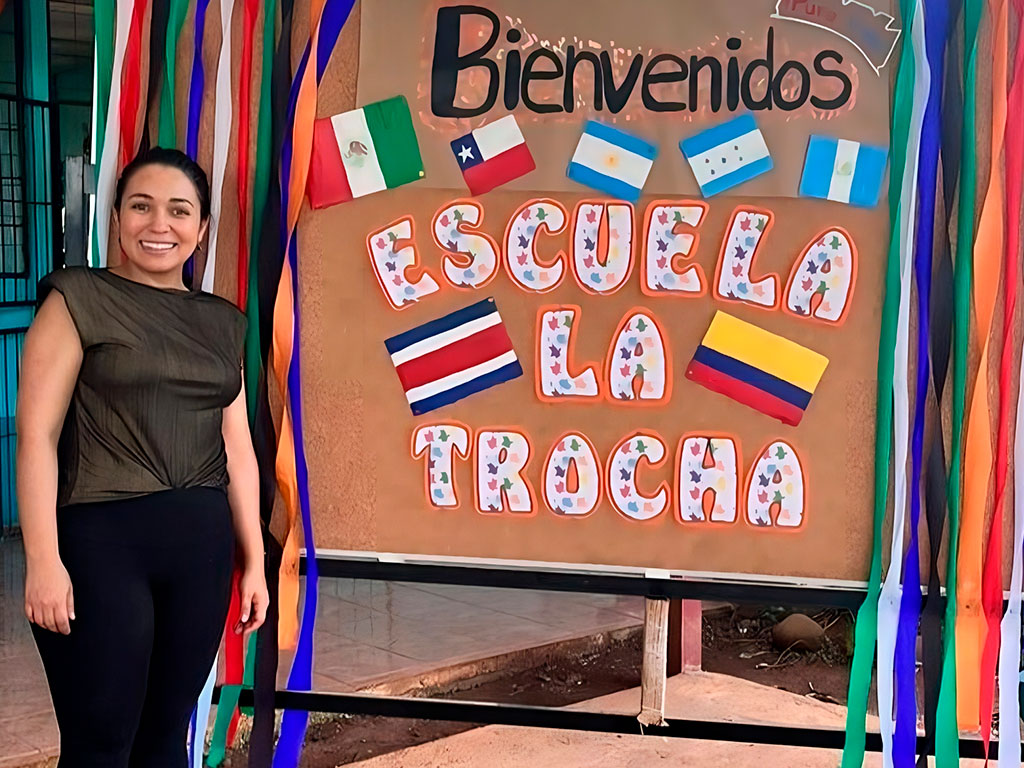
Research Focused on the Right to Education
“I am very interested in analyzing rural education from the point of view of educational inequality, access to education, the rights that are not fulfilled in many of the cases where education is offered in rural areas, for they are often very marginalized areas, that is, areas with little access to basic services, in addition to the fact that they are isolated or dispersed by roads and communication.
This has an aggravating effect on the right to education. I have been involved in these issues since my PhD and my research and teaching have focused on this sector,” she says.
Being part of this network focused on the study of basic rural education (preschool, primary and secondary) and high-school education aimed at the mestizo and indigenous population, as well as migrant farm laborers, has given Mrs. Teresa Hernández the opportunity to attend the seminar at the National University of Costa Rica.
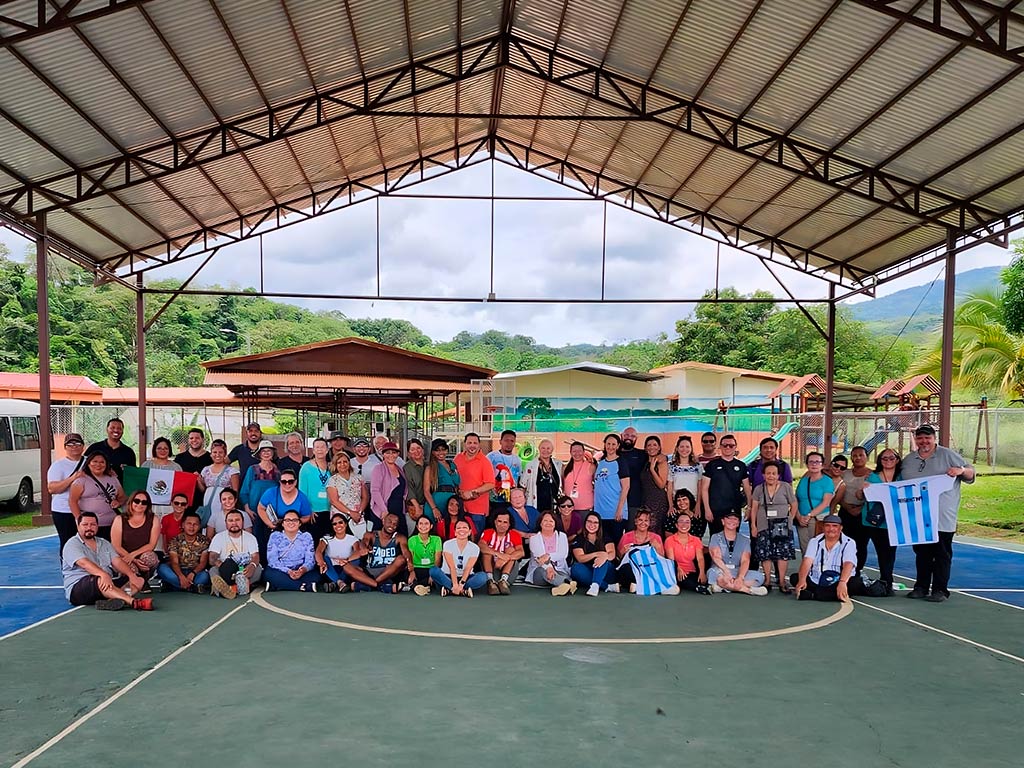
As part of the seminar activities, the researchers visited some schools in different rural communities where workshops were given to parents, children and teachers on formation; they also had the opportunity to visit model schools that told them how they created their own educational models, their history, the programs they have, mission, vision, facilities, etc.
“My experience attending the IX Seminar on Rural Education was characterized by sharing with colleagues from Latin American countries successful experiences in rural education from the field of research but also from school practices that have had a positive impact on the community,” says Mrs. Teresa Hernández.
In addition, Teresa Hernandez says that this experience was very enriching both professionally and personally, because she was able to contextualize the topic of her PhD thesis, to offer this workshop with which she deeply knew the context in which people live and with which she understood the reality they find themselves in on a daily basis, as well as to interact with other people.
In this two-and-a-half-hour workshop, participants reflected on the importance of inclusion and community coexistence as well as lifelong learning, with the intention of avoiding prejudices about the circumstances in which some families find themselves and to strengthen a healthy and positive coexistence on a daily basis. The school where the workshop was held serves Nicaraguan and Costa Rican populations alike.

